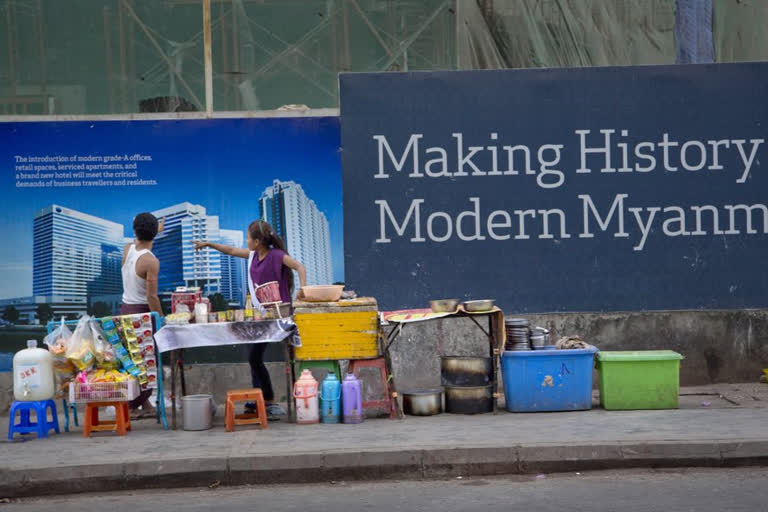Bangkok: The military coup in Myanmar is unlikely to do the country’s struggling economy, once considered a promising “last frontier,” any good at all.
It’s unclear if China might help make up for lost business due to the increased political risks and potential for turmoil if public anger over the ouster of massively popular Aung San Suu Kyi and fellow civilian leaders erupts in mass protests.
Apart from raising the risk of political unrest, economic sanctions and other disruptions, the coup likely will prove to be a huge setback to efforts to improve Myanmar’s investment environment, curb crony capitalism and build a more sustainable path to growth.
“With this kind of situation, the sad thing is that you don’t even need to put sanctions in place because the dire economic consequences of the conflict, combined with what happening now makes the country look very unstable and not the right place to invest right now. So the repercussions are immediate,” said Laetitia van den Assum, a former diplomat and a member of the Advisory Commission on Rakhine State, which was set up by former U.N. Secretary-General Kofi Annam to improve Myanmar’s treatment of minority Rohingya Muslims.
The military seized power shortly before a new session of Parliament was to convene on Monday, declaring its actions were legal and constitutional because Suu Kyi’s government had refused to address voting irregularities in November’s election, which her National League for Democracy won in a landslide.
That provoked a rush to ATMs and food stalls. TV signals were cut and passenger flights were grounded. Authorities urged calm while moving to suppress dissent through Facebook and other social media.
Read:|The return of the military junta in Myanmar
Commander-in-Chief Senior Gen. Min Aung Hlaing, who now controls the government, met with business leaders and pledged to maintain financial stability and “continue work on international projects.”
Meanwhile, the central bank promised it would not demonetize any of the currency, a reasonable fear: three past demonetizations provoked much anguish and anger.
“The general public can continue using the banknotes and banking services without any worries, and all the banks have been instructed to provide regular banking services,” the Central Bank of Myanmar said in a notice.
The economy already was faltering before the pandemic. Sian Fenner of Oxford Economics estimates the coup will likely cut growth this year by half, from an earlier forecast of 4.1% to 2%.
The past decade’s average annual growth rate of 7.6% had slowed to just 2.9% in 2019. Last year, the World Bank estimates the economy grew 0.5%.
The economy’s performance fell short of popular expectations as growth benefited a tiny part of the population and reforms took a back seat to efforts to end decades of ethnic civil conflict. Tourism has suffered and new sanctions were imposed following a 2017 counterinsurgency campaign that drove about 740,000 of the mostly Muslim Rohingya to flee the country.
Min Aung Hlaing is one of four generals who were blacklisted by the U.S. Treasury Department for the military’s abuses in Rakhine and other ethnic majority regions.
Given the recurring risks of falling afoul of such sanctions, many U.S. companies have held back on major direct commitments, instead opting for local partnerships. Fast-food giant Yum! Brands Inc., for example, opened its first Kentucky Fried Chicken outlet, a franchise with local partner Yoma Strategic Holdings, in downtown Yangon last year.
President Joe Biden said Monday the coup would bring an immediate review of U.S. sanction laws, “followed by appropriate action.”
